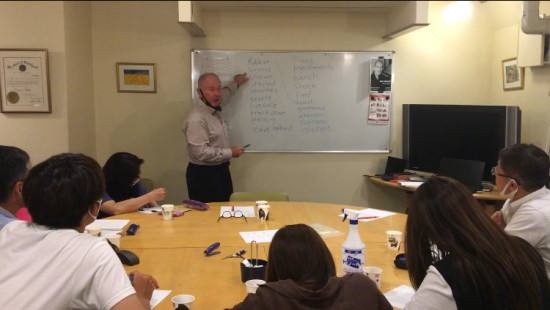10月の木曜日の夜のクラス(19:30-21:00)は、お休みさせていただく事になりました。個人レッスン/小グループでのレッスンをご希望の方は、伊藤までご連絡くださいますようお願い申し上げます。
カテゴリー別アーカイブ: 英会話スクールの日々
☆お仕事帰りの英会話 w/Kurt
☆英会話サロン w/Sam Articles(2020/10/01-10/6
☆お仕事帰りの英会話 w/Kurt Article(2020/09/28)
Litter In Thai Parks
Litterbugs who drop their rubbish in
national parks in Thailand may be in for a surprise the next time they check their mail – the litter they left may have been returned to them. Thailand’s Environment Minister has decided to take a stand on the increasing amount of sweet wrappers, plastic bottles and paper that is strewn across national parks. He has asked park wardens to collect the litter and mail it to the offending litterbug. It comes with a letter that says: “We collected your garbage in a cardboard box and sent it to your home. This should be a lesson to you, to never again throw away waste anywhere.” Additional penalties could come in the form of five years imprisonment or a hefty $16,000 fine.
The severe penalties have been initiated because of litter becoming an eyesore in many of Thailand’s beauty spots. Park wardens say it is relatively easy to track down and identify offenders, as all visitors to the parks are required to register their address when they enter a park. Anyone who leaves refuse near their assigned camping spot will be reunited with their waste. Narin Pinsakul, chief of the Khao Yai National Park near Bangkok, explained why the parks were introducing their return-to-litterbug policy. He said: “It can be dangerous for animals like deer if they eat the rubbish and try to digest plastic waste that people leave behind.” The Environment Minister said people should only leave footprints behind.
Courtesy of Breaking News English
☆Business English Salon w/Ian Article(2020/09/26)
☆英会話サロン 2020年10月のスケジュール
お知らせ:
1)夜のクラス(お仕事帰りの英会話・“TOEIC めざせ800点”)をそれぞれ2回づつ開催させていただく予定です。(要予約) よろしくお願いいたします。
2)Jazz Sessionは、安全に留意し、ロバート先生のJazz Class受講者・JETSの生徒さん・田村綾さんのグループを中心に開催させていただきます: Robert Ahad(p/vo/coach), Tetsuo Kondo(b), Larry Ransome(d), Aya Tamura(p/coach)
参加費: 2,000 yen(飲み物付)
3) 英検作文・TOEFLWritingの添削指導をメールで行っています。ぜひ!
英会話サロン2020年10月
☆英会話サロン w/Sam Articles(2020/09/23-24)
☆Business English Salon w/Ian Articles(2020/09/19)
https://writeshop.com/describing-a-food-the-good-the-bad-and-the-ugly/amp/
https://howtowrite.customwritings.com/post/descriptive-essay-favorite-food/
Ian’s comment:
This week’s articles deal with food themes, following last week’s discussion… here is a supplementary article that provides much useful vocabulary!
https://www.webstaurantstore.com/article/53/how-to-write-a-menu.html
☆TOEIC 目指せ800点! w/新田先生
本日(2020/09/17 木曜日)、19:30- 予定通り、開講いたします。どうぞよろしくお願いいたします!
☆Business English Salon w/Ian
ClassでのレッスンをOnlineでも受講できます!
https://youtu.be/MycZzFzkNE4
